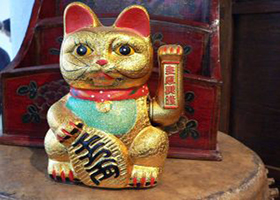


In doing so, they find that individual investors are superstitious but institutional investors are not. Which is good news for institutions because there is a negative correlation between trading profits and the superstition index. “We find that these losses arise from bad trades at nearly all price points for a superstitious trader, not just at “8” and “4,” suggesting that superstition may be a symptom of a general cognitive disability in making financial decisions.”
Bottom line: traders who look for luck usually find the opposite.
The paper is written by Utpal Bhattacharya, Welyu Kuo, Tse-Chun Lin and Jing Zhao and you can download it here.
